How comedy in games succeeds and brutally, tragically fails
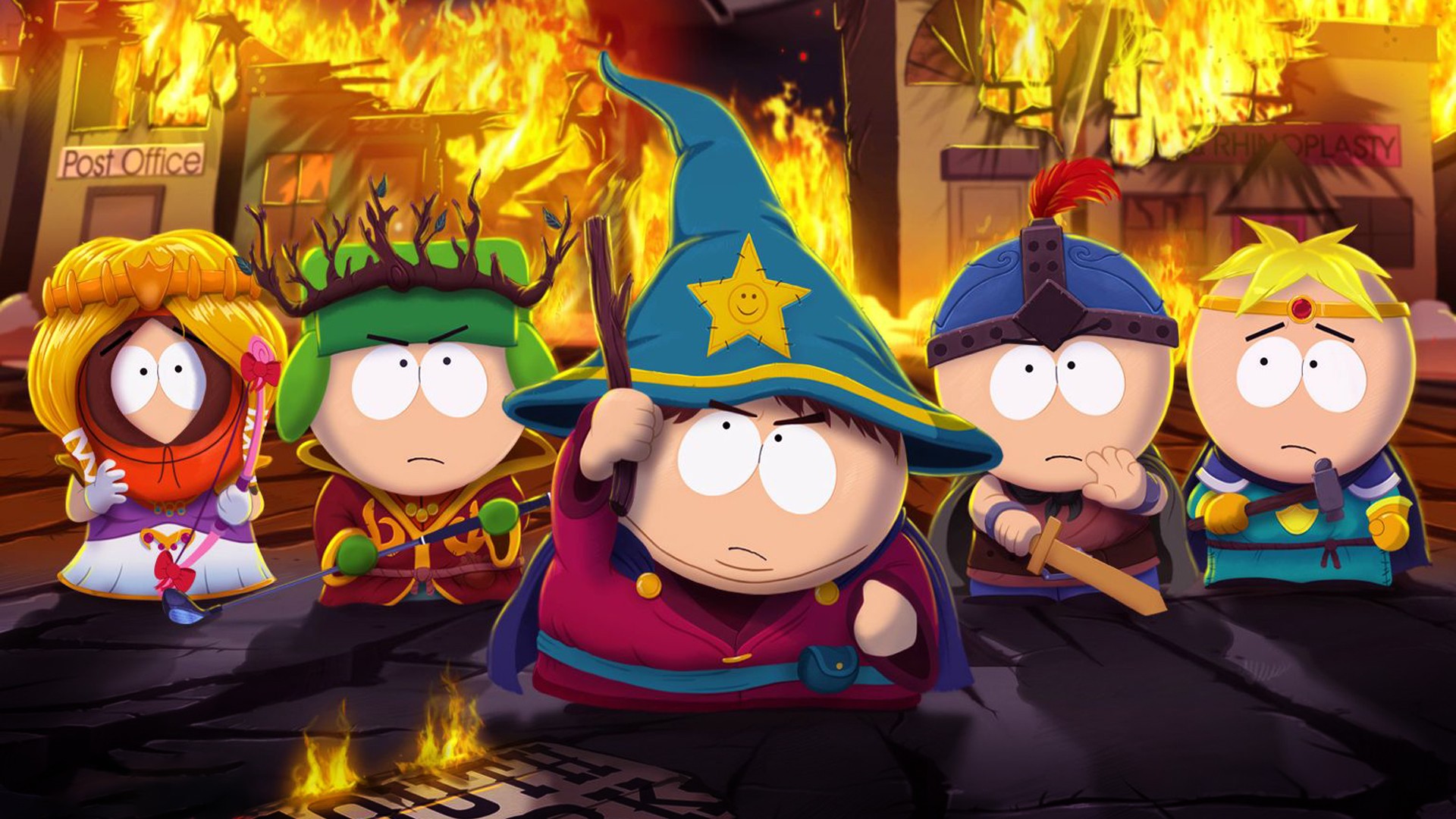
Comedy is a tough gig. Ask any touring comedian or comedy writer, even the wildly successful ones, and you’ll hear the same refrain: it’s hard to be funny on demand. It’s even tougher in games, in a lot of ways, because it’s not a medium that lends itself easily to comedic timing. Designers and writers know they have to cede control to players for huge portions of the experience they’re creating, which means that even if the material is killer, a lot of the time players will (inadvertently or not) spoil a great joke by not doing what they’re supposed to (or not even discovering that joke in the first place). And if you don’t have that killer material up front, you’ve already failed.
All of which means that when it does work, it’s impressive as hell. Any studio that does it with any sort of consistency is accomplishing an almost impossible task...which is probably why there are almost none of those studios around. Many that have tried have disappeared (pour one out for the good people of Lionhead, or even the original Sierra) and many others have wisely transitioned into greener (the color of money, it must be noted) pastures.
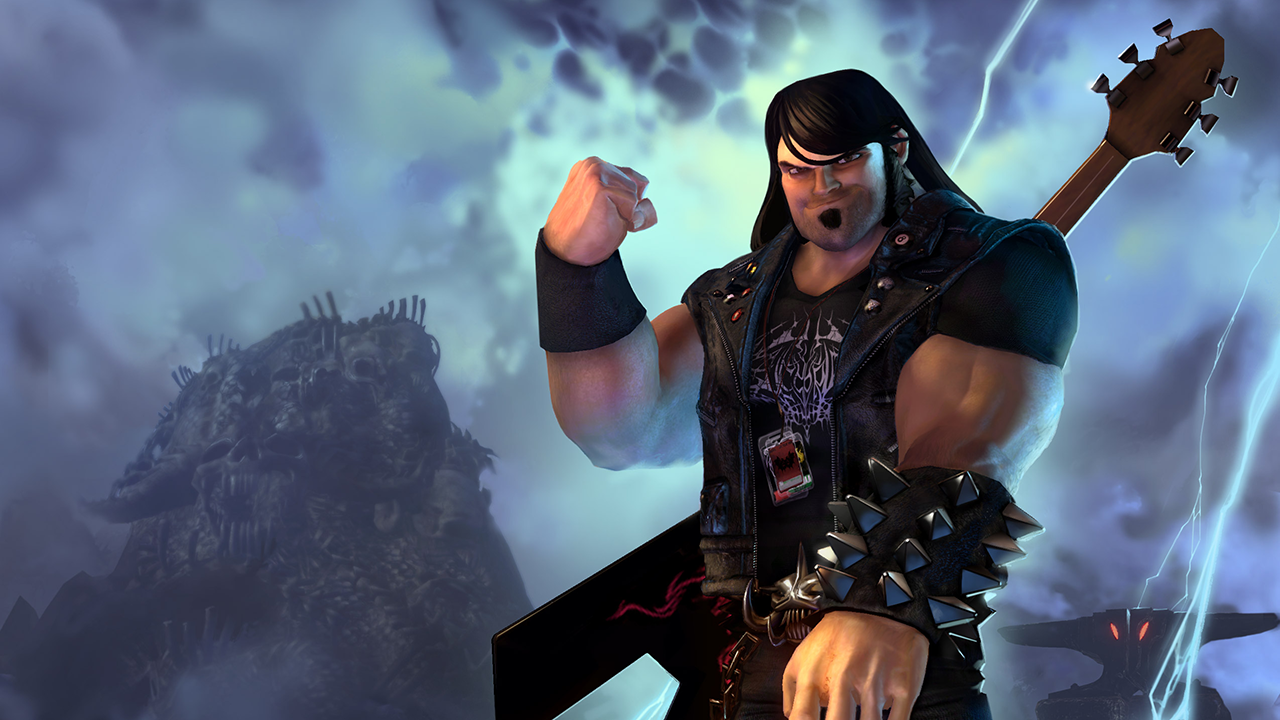
Against such odds, the success stories deserve celebration. A studio like Double Fine has built their reputation on whimsy and giggles, and done an, ahem, fine job of incorporating humor into games even when it’s not the primary focus. Starting with Psychonauts way back in 2005, through Brutal Legend, Iron Brigade, and a host of others, Tim Schafer’s team has proven they can make games in genres not typically considered fertile for hilarity and pack in sly humor in surprising quantity. And when they do turn their focus to games whose core ambition is to make people laugh, they succeed with similar regularity to the finest comedy minds working in friendlier mediums.
Their success is in large part the product of long years of striving, not just at Double Fine but by the industry at large. Way back at the zenith of the point-and-click adventure, games like Monkey Island and Schafer’s own Grim Fandango proved that real comedy wasn’t impossible in video games. Those games solved the issue of timing by setting the pace very carefully and ensuring that players had to see the content the writers wanted to expose them to advance the plot.
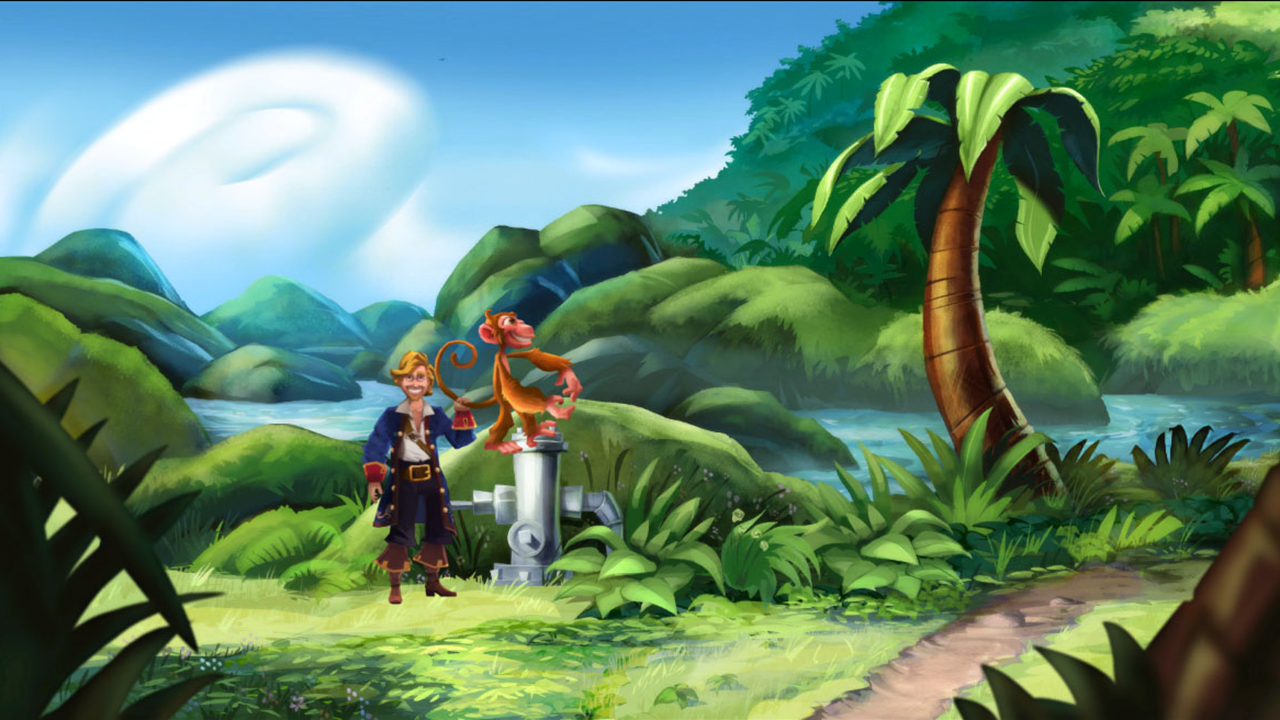
Adventure games remove a lot of the inconveniences, but theirs isn’t the only recipe for success. Bizarrely, some of the funniest modern games come from licensed properties, a space generally considered a gaming ghetto. But The Simpsons Game and, more recently, South Park: The Stick of Truth, prove that with clever writing (by comedy veterans) and by taking shots at gaming tropes in smart ways, you make a funny game that’s not mired in ancient conventions of play and pace.
And then there are wild outliers, games that manage to be funny more by surprise and sheer force of will than with traditional comedy writing. Look at this year’s Doom reboot, one of most unexpectedly hilarious games I’ve played in a decade. By casting off the grimdark, super self-serious tone of Doom 3, the new game made me actually laugh out loud with its corporate investigation of the profitability of hell-portals and protagonist who just does not give a fuck about anything/one. Doom never tries too hard and is able to make fun of itself and its long, silly, death-metal Satanist lineage in a way that’s surprisingly charming and 2016’s best surprise so far.
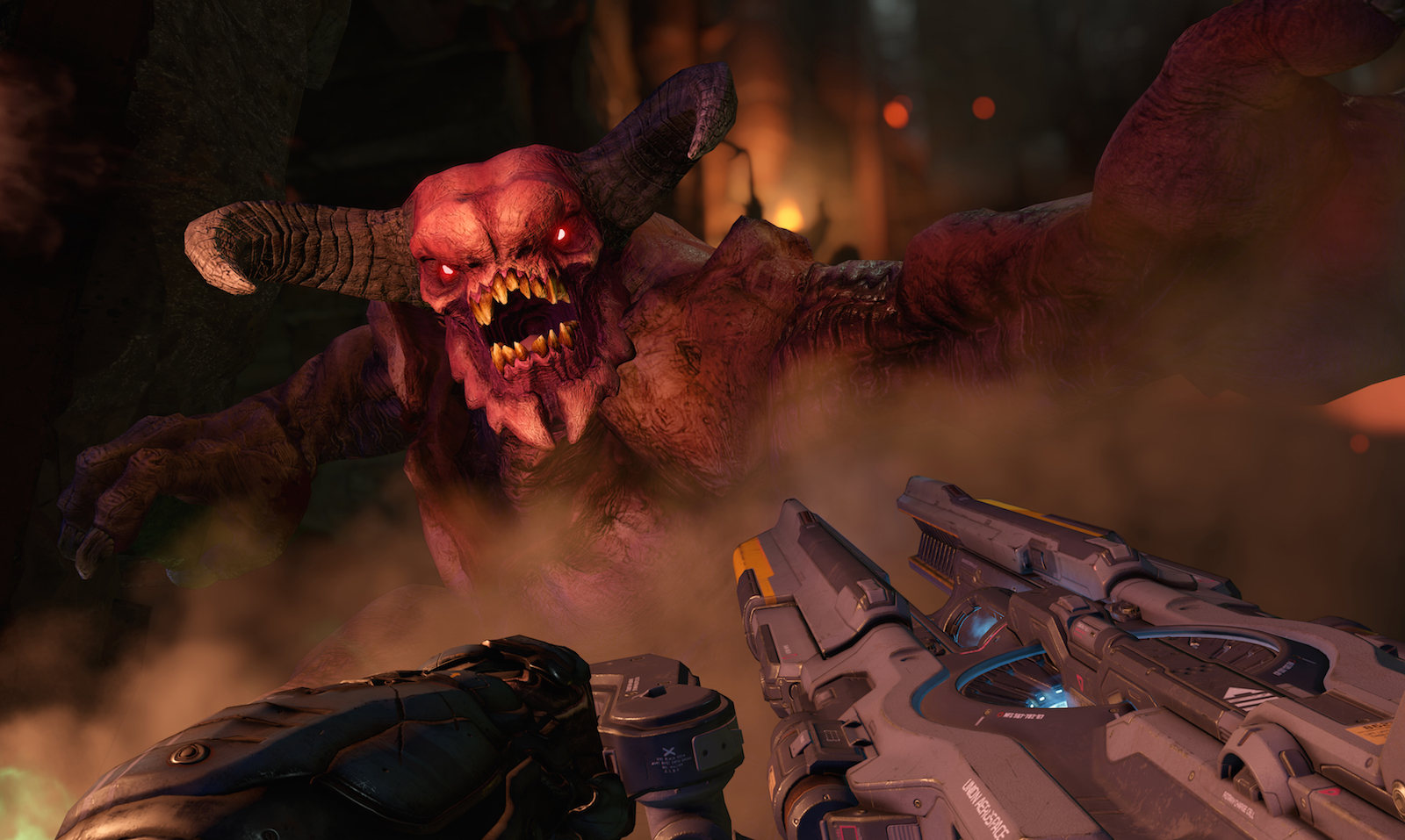
Getting laughs is harder than it looks, though, and not every swing is a homerun. Some games get part or even most of the way there but fumble at crucial points or just push too hard in the wrong direction. Take open world stalwarts like Grand Theft Auto or Saint’s Row. There are some genuinely hilarious moments in both (as you’d expect after so many bites at the apple), but they miss the mark even more often. Both games have the bad habits of relying on sophomoric toilet humor or pointing at something vaguely dirty/sexual and hoping it’s funny by itself, in a vacuum. But a purple dildo by itself isn’t hilarious, and calling your restaurant “Rusty Brown’s Ring Donuts” is just kind of sad. It has the feel of that slightly creepy uncle who was amusing in grade school but is still cracking the same terrible jokes 30 years later.
Sign up to the GamesRadar+ Newsletter
Weekly digests, tales from the communities you love, and more
And then there are the outright failures, games that try so hard they’re almost predestined to fall apart. Death Spank comes immediately to mind, a series that felt like it was throwing a thousand things at the wall and hoping something would stick, but that ended up just feeling needy, like a stand-up comedian who begs the crowd to laugh after every flat joke. Like the worst parts of Saints Row and GTA, it hopes things like thongs or outhouses will be hilarious by virtue of their existence, and seems too lazy or unskilled to build actual jokes around them.
Death Spank also suffers from one of the worst and laziest habits in comedy game design, making fun of bad gaming tropes by putting the same tropes in your game. It’s not enough to point out how terrible escort quests or underwater levels are while you’re forcing players to complete an escort quest underwater. We get it, killing ten rats in the first hour of your RPG is dated, silly quest design, but if you’re pointing that out by making us kill ten rats then you’re just adding to the problem, not parodying it.
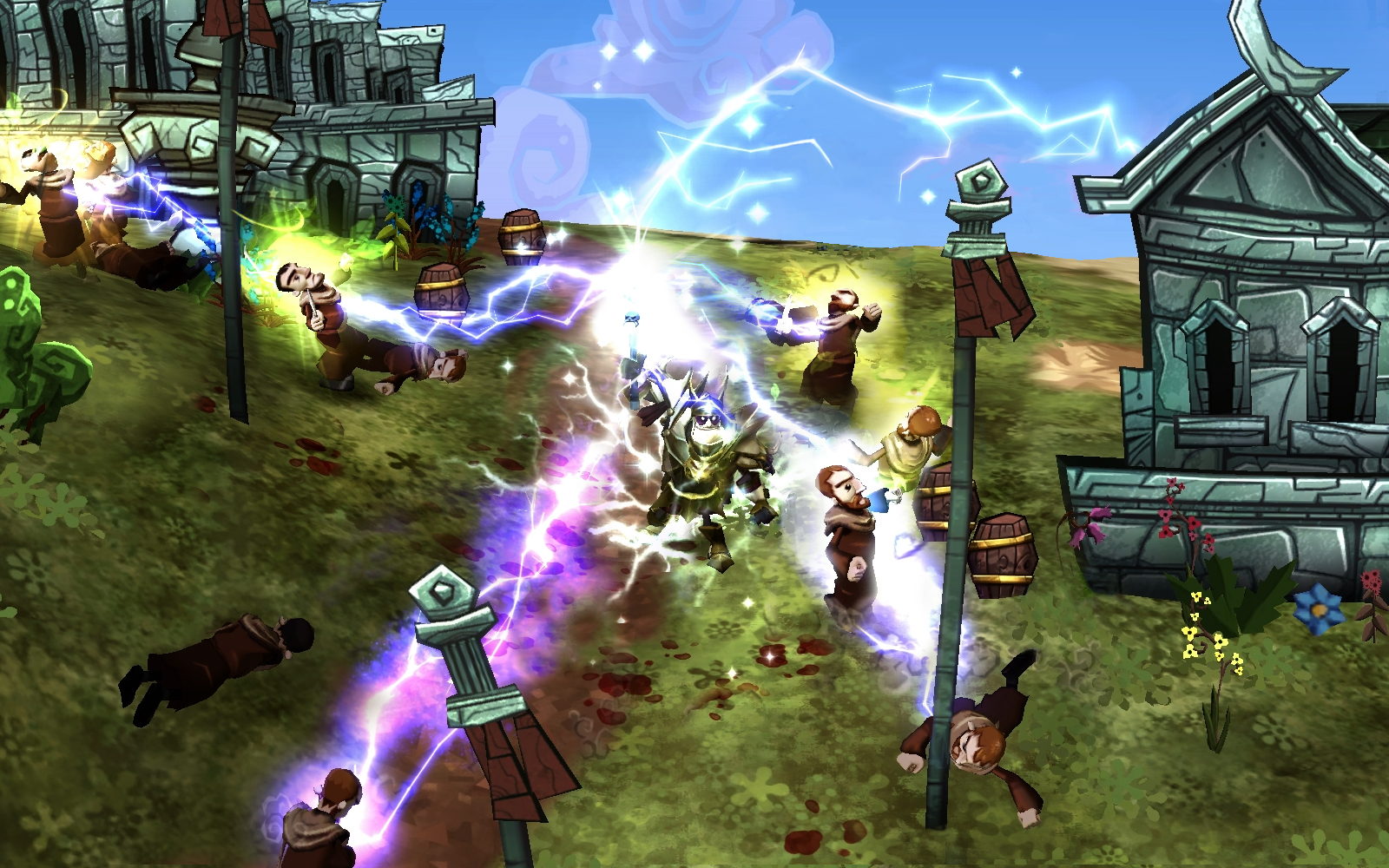
And finally, there are those most pitiable offenders, games whose stabs at comedy are tragically undermined by poor voice acting, shabby gimmicks, and cringey execution. The Hyperdimension Neptunia series, where goddesses representing video game platforms fight proxy console wars, is an example of all three crammed into the same awkward package. The already thin premise and sub-par writing isn’t elevated by the generic ‘anime’ voiceover work (nor by the creepy hyper-sexualization, but that’s another article). And then there’s the middling voice work and sweaty desperation of Sunset Overdrive, a game that lands maybe one in ten of its many attempts to crack you up, and spends the rest of the time trying to convince its audience that LARPers are really funny and randomly breaking the fourth wall is still surprising and hilarious in 2016.
Comedy works best when it’s tucked into an already strong game and is crafted by a talented team who understands subtlety and nuance. It’s unbelievably hard to do, it fails far more often that it works, and often ends up making everyone involved look variously ludicrous or pathetic. If you’re don’t have the chops and absolutely golden material, don’t even attempt it, don’t get anywhere in the neighborhood, leave it to the professionals. Maybe try drama. People love drama.
Alan Bradley was once a Hardware Writer for GamesRadar and PC Gamer, specialising in PC hardware. But, Alan is now a freelance journalist. He has bylines at Rolling Stone, Gamasutra, Variety, and more.



